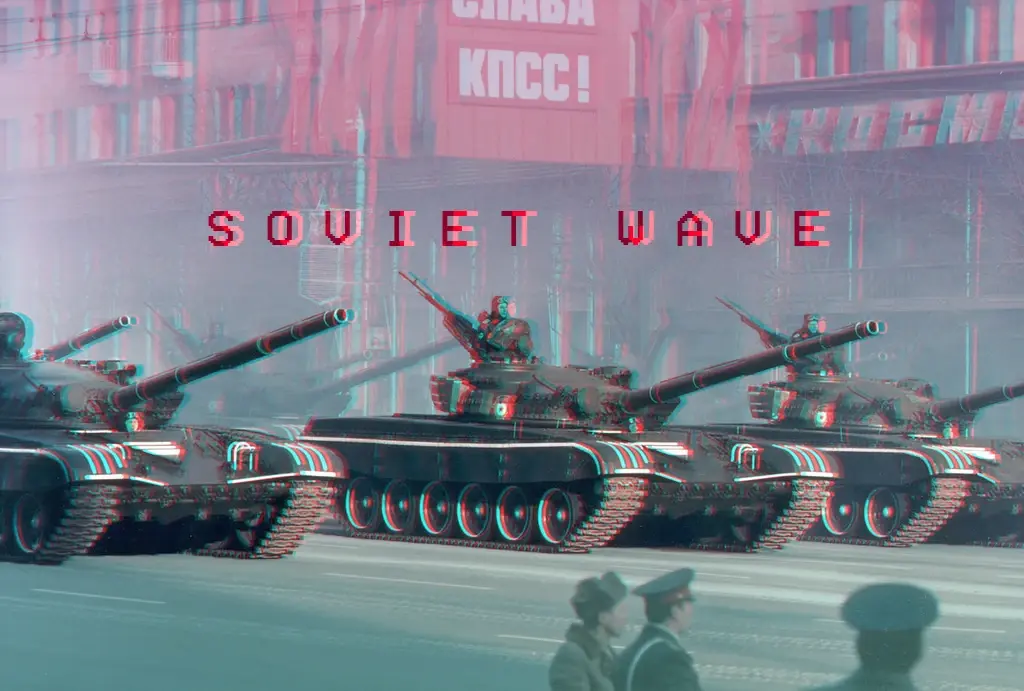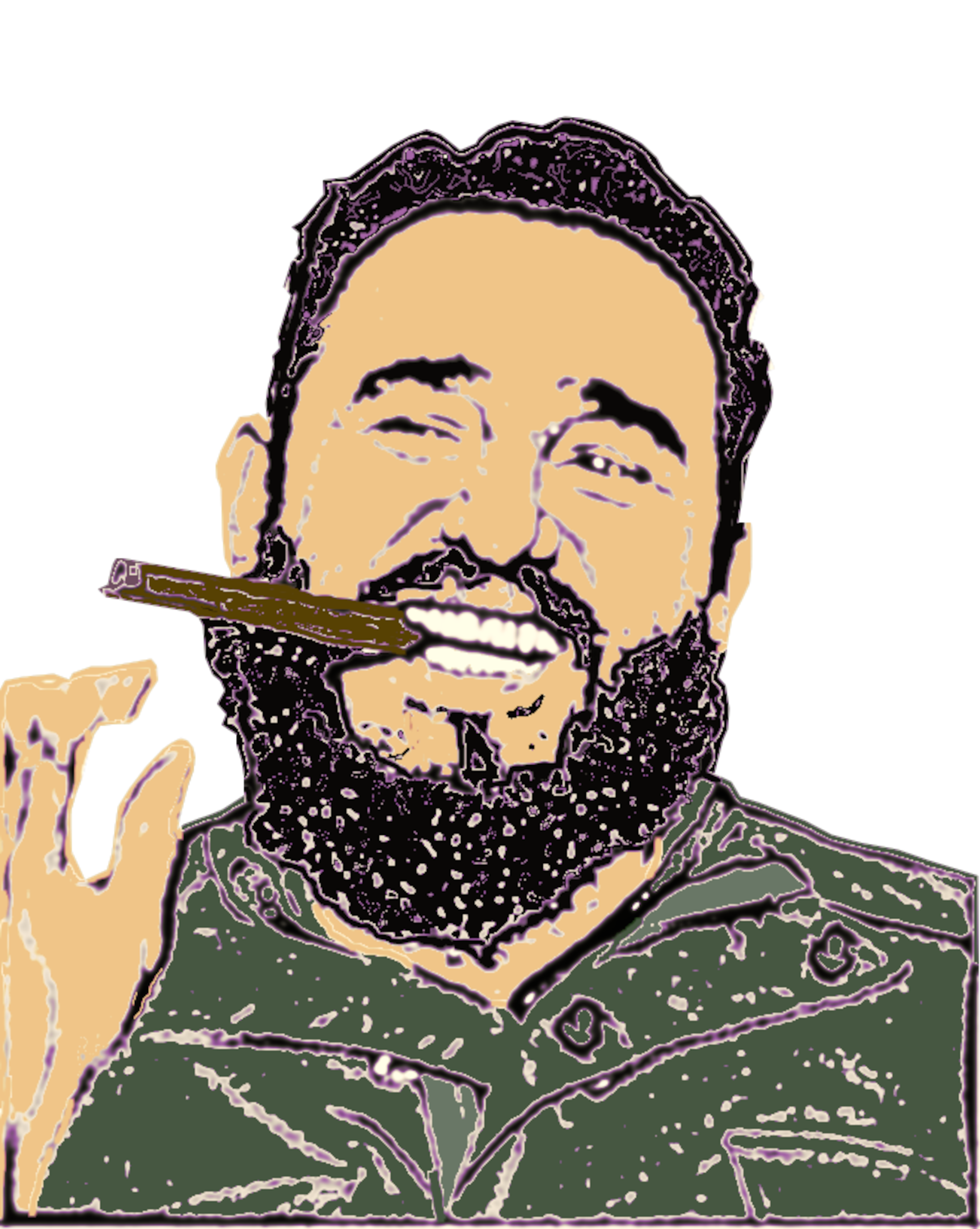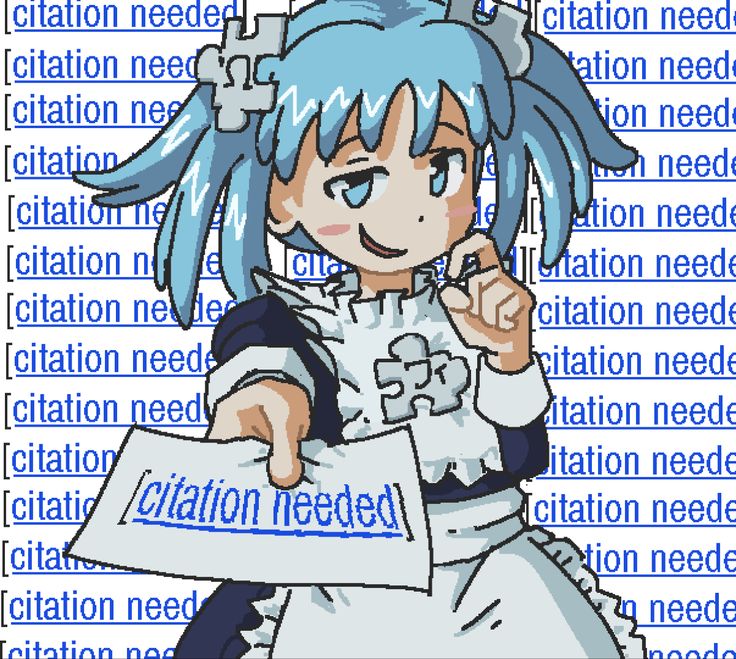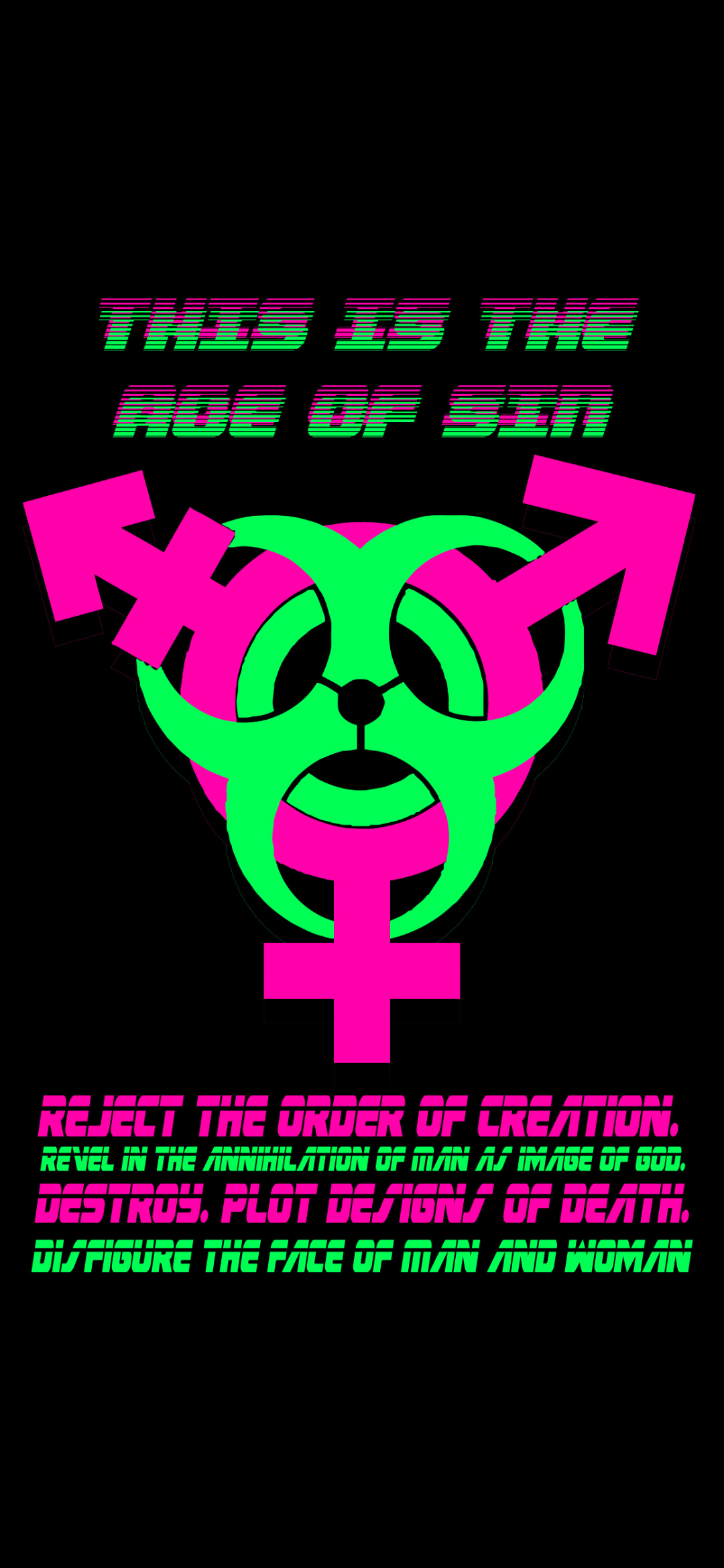I'm hoping this doesn't start a fight, I'm just curious what the political orientation is of this community. I grew up in a liberal (in the American sense) family, and I identify now as a socialist, though a lot of the liberalism I grew up in has stuck with me, like interest in LGBTQ and women's rights, environmentalism, etc. Wondering where people here land?
I'm a communist, most people I work with consider me an anarchist but I'll work with almost anyone who's ready to end private property.
fiscally Marxist-Leninist (le ebil tankie)
socially anarchist
I'm interested what you mean by this? Fiscally for a command economy but socially against it?
It's kind of a joke how liberals say "they are socially progressive but fiscally conservative," while the whole definition of liberalism in the Amerikan States is messed up.
But it's also not a joke in the sense that there are two wolves inside me: le puritan Leninist that is primarily concerned with (redacted) and people's war. and bisexual femboy
Do not fucking dare to speak for us with your ahistoric ideas about gay rights. No communist government during the 20th century was worse than western countries on "equal rights" for LGBTQIA+ people. Because we didn't have equal rights anywhere in the world in the last century. Are you a literal fucking child that you're unaware of that or are you just the typical liberal that completely lacks object permanence and immediately forgets how he has actively supported the oppression of marginalized people once the mainstream consensus has moved on? That doesn't mean the USSR's treatment of gay people wasn't atrocious, it means that we were legally persecuted everywhere. The USSR threw gay people in jail, so did the USA and West Germany and the UK. Gay men were actively hunted by the law in the bourgeoise democracies you love so much. Germany had forced sterilization of trans people seeking a name change until 2011 (btw the DDR didn't have a law like that on the books). Fuck you for thinking us having at least some basic human rights has always been the status quo of the enlightened west since forever, i still have to struggle against my goverment and my healthcare system all the damn time while my people are being actively singled out and villified through multimillion euro harassment campaigns backed by our conservative party. How do you fucking dare to explain to me how free i am under this joke of a system? Democracy is a fucking nightmare when you're a minority of less than 1% of the population. Majority rule means minorities are treated like dirt. Free speech means that the majority is free to shout us down while we are being silenced.
Regarding your idiot takes on the DDR, backed by wikiepdia links (lol) that you, in typical liberal fashion, didn't even read, the "equal rights" situation was actually better in the DDR, were gay sex was legalized in 1968 instead of 1994 like in the West, which only had a partial legalization a year after the DDR and retained a significantly higher age of consent for gay relationships, as judges and lawmakers back then were firmly convinced the being gay spread by social contagion and that vulnerable young men had to be protected from predatory queers trying to turn them gay. That was the actual legal consensus about gay sex throughout the mid 20th century in Germany. If you knew ANYTHING about gay rights in Germany, you'd be aware of this, it's a key part of queer German history how the West perpetuated fascist views about queerness. West German conservatives were thinking out loud about throwing gay people in camps in the 1980s. But you aren't, because you're a clueless het shit trying to straightsplain queer rights to queer people.
i never understood LGBTQ people who identify as liberals given these regimes heavily persecuted LGBTQ people and continue to persecute them to this day (the U.S. for example)
Yeah it's not like the countries with the highest acceptance and rights of lgbtq people are liberal democracies, lol
I have a lot of thoughts about this as a trans person, and a communist. For one I strongly dislike the way liberals try to use queer people to excuse their war machine - it just gives the cover for bigots abroad to veil their misogyny and transphobia as "anti-imperialism"
Liberals are not doing queer people a service by making them the political football. You're not helping queer people in the countries you sanction and lay waste to either. Stonewall was a riot. If you're poor, queer people have not been really "accepted" in places like the US until relatively recently- it took 9 unelected people in robes to allow gay marriage, and Obama "evolved" on it.
As a trans person, the outcome that would directly benefit me the most from political action would be the immediate abolition of private property - ie decommodifying housing, and guaranteeing healthcare- nationalizing the for-profit healthcare. It's no good to me that my rights are "accepted" in the west if I can't afford to fucking transition and I'm living on the street. But I guess that would be "authoritarian"
As a trans person, the outcome that would directly benefit me the most from political action would be the immediate abolition of private property
No it wouldn't, given they didn't have rights in the Soviet Union, which abolished private property.
I don't really buy into tankies complaining about "the war machine" when they back Russian and Chinese imperialism. Something tells me you don't care about trans rights when Russia directly claims to be fighting LGBTQ people in Ukraine.
Its actually not like the countries with the highest acceptance are liberal democracies
-
The Queer liberation movement has long been spearheaded by communists. Harry Hay, Sylvia Rivera, Rudolf Klimmer, and many others, were all communists who, in some form or another pushed forward the cause of queer liberation.
-
On the whole, Socialist states in the 20th century were no better or worse on queer issues than any liberal democracy. We were treated like shit pretty much everywhere. They were not special in this regard.
-
A notable exception was East Germany, which, though not without flaws, had a far better queer rights track record than its Western capitalist counterpart:
The HIB (Homosexuelle Interessengemeinschaft Berlin) was established in 1973 with the belief that ‘homosexual emancipation is part of the success of socialism'.
-
You can check out the new Cuba family code. It was heavily discussed and amended at the lower councils and then passed through to the national level. Also, Fidel did have some conservative beliefs regarding gay people in the past, but he later took back what he said and supported LGBTQ+. The DDR was also wildly progressive on the gender, sexuality, and feminist front. I have heard that the DPRK is slightly culturally conservative in the aspect that public displays of affection are generally frowned upon, but LGBTQ+ are not persecuted, but neither outright celebrated. Similar position to China and Vietnam.
The takeaway for LGBTQ+ rights is not corporate sponsors, pride parades, and consumption -- but if they are free to be themselves. Are they committing sewerslide in droves? Being targeted by death squads? In many parts of the West, many of their rights are being rolled back or threatened, especially in Amerika. Not all AES support for LGBTQ+ community is perfect, but that would be due to the limiting factor of traditional, conservative views held by the majority population -- not socialism.
I'm aware of Cuba's recent laws regarding LGBTQ rights. Cuba for decades sent homosexuals and trans people into internment camps because they were "deviants" and only recently has enacted LGBTQ rights because it's been forced to open up to the rest of the world after the fall of the Soviet Union. Also it's just one example, whereas the largest ML country, China, heavily represses anyone who is not heteronormative. So does North Korea. So did the Soviet Union and Eastern Bloc. It was in liberal democracies where LGBTQ people first gained rights and have the strongest rights.
It was in liberal democracies where LGBTQ people first gained rights and have the strongest rights.
hi i'm trans and i live in florida, where are my human rights you dickhead? where are your precious liberals?
They're not in communist countries. And Florida is led by illiberal increasingly anti-democratic figures that are directly inspired by Russia and even China, so what a terrible example to counteract my point, lol
https://www.guancha.cn/politics/2019_08_21_514563.shtml
https://baike.baidu.com/item/%E6%80%A7%E5%B0%91%E6%95%B0%E7%BE%A4%E4%BD%93/19500488
https://issuu.com/undp-china/docs/undp-ch-legal_gender_recognition_-_
Homosexuality in China and Does China Ban the LGBT movement?
China has trans healthcare. You can find LGBTQ stuff on Bilibili or Baidu. China has a three-no policy. No approval. No disapproval. No promotion. As for you -- no investigation, no right to speak.
As for Soviet Union and Eastern Bloc goes...
Article 121 (the "anti-gay law" passed by the head soviet) was designed as an anti-pederasty law. If you look at the law text,it mentions or at least implies pedophilia.
To quote The Sangha kommune:
"Article 121, despite its curious reading, appears to have been designed to protect Soviet society from the menace of child abuse and paedophilia, although it is recorded that Soviet academia was interested in the practice of homosexuality from a medical perspective, and attempting to ascertain its root cause (with a number of early Soviet researchers following the Czarist assumption of aberration). This did not mean that homosexuals were persecuted – far from it – the general underlying trend in the USSR was to end all oppression, and facilitate the integration of the individual into the collective."
https://thesanghakommune.org/2016/12/28/the-ussr-and-homosexuality-article-21/ There’s no objective, verifiable evidence of a persecution of homosexuals in the USSR
To quote Sangha Kommune again:
Research By Adrian Chan-Wyles PhD
"The fact that the Soviet Union was considered enlightened and tolerant demonstrates that these laws were not applied as a deliberate attack upon homosexuals – although in the 1930’s, certain homosexual activity became associated with specific counter-revolutionary activity. In this regard, homosexuals who strove to bring-down the USSR were treated as ‘criminals’ – just as their heterosexual colleagues. Soviet records demonstrate that Joseph Stalin… was responding to various police reports about contemporary counter-revolutionary activities (usually within major cities). "
"Modern (capitalist) Russia has now imported much of the anti-Soviet Cold War disinformation fabricated by the US (and her allies) between 1945 – 1991. As a result, many modern Russian authors side with the reactionary forces of capitalism and adopt this pseudo-history as their own (apparently not realising its ‘racist’ anti-Slavic nature). The above article is anti-Soviet and is designed to give the impression that the USSR carried-out a continued pogrom against homosexuals – even though its author continuously states that there is no evidence to support his claims. Indeed, the only evidence the author can muster is ‘Western’ Cold War authors whose work – as pieces of official fiction – contain no Russian language sources. However, I have quoted this piece where I have been able to verify the facts within Russian language sources. It remains informative on two counts, 1) as a narrative history of homosexuality in Russia from early times to present, and 2) as a study of modern (Russian) anti-Soviet literature. I have found no objective, verifiable evidence of a deliberate persecution of homosexuals in the USSR. "
https://thesanghakommune.org/2017/01/05/the-ussr-and-homosexuality-part-iii-rsfsr-article-154a/
LGBTQ+ being put into camps in Cuba is also straight-up an anti-communist myth.
To say that "It was in liberal democracies where LGBTQ people first gained rights and have the strongest rights." is ridiculous. AES countries had LGBTQ+ rights first and continued progressing, The DDR was fairly progressive in the 1980s and continued to progress -- similar to the USSR and Eastern Bloc, however, I discussed the famous article 121 above how ""homosexuality was recriminalized. Meanwhile, during the Red Scare in Amerika, gays were specifically investigated because they were seen as more likely to be communists. In many parts of the West, it took until the late 20th and early 21st centuries for the advancement of rights for the LGBTQ+ community.
https://www.economist.com/china/2023/05/25/why-the-communist-party-fears-gay-rights
https://en.wikipedia.org/wiki/LGBT_history_in_Russia#Soviet_Union
https://en.wikipedia.org/wiki/LGBT_rights_in_Cuba#Homophobia_and_labor_camps_during_the_1960s
So no, reality doesn't conform to what you're saying.
DDR was fairly progressive in the 1980s
It was less progressive than West Germany/West Berlin, and only began tolerating LGBTQ people (not granting them equal rights) after opening up more to the West near the end of its existence.
https://en.wikipedia.org/wiki/LGBT_rights_in_the_German_Democratic_Republic
Cuba for decades sent homosexuals and trans people into internment camps
The UMAPs only existed for 32 months between 1965 and 1968, they were an awful failing of the government but to claim that the cuban government did this for decades as a point of policy is a blatant ahistorical lie.
It's also worth noting that just 60 miles off Cuba's coast in the United States, it was only in 2003 that the government made it so that gay men would no longer be thrown in jail and forced to carry out labour for pay low enough that it would (depending on the state) legally be classified as slave labour if they weren't imprisoned.
and only recently has enacted LGBTQ rights because it's been forced to open up to the rest of the world after the fall of the Soviet Union.
Look, I'm no fan of how Cuba treated it's queer population historically. That much we agree on.
But to suggest that Cuban queers have no agency of their own, and pretend like Cuba only passed its family code because it was "Forced to open up to the rest of the world" portrays an incredible ignorance of Cuban history and politics.
It's something that often people will point to how communists heavily persecute LGBTQ people but ignore that the people who fought for LGBTQ liberation in the western world were Marxists, MLs, Maoists, or worked very closely with those groups.
I'm an anarchocommunist.
While states still exist, I am a Welsh nationalist because independence from the UK is the only way we can stave off English attempts to undermine the senedd and Welsh democracy as a whole.
As I said before, only while states exist.
Welsh nationalism as a short-term project, because the structure of the UK gives ultimate control to the houses of parliament (a largely unelected seat of power), if any form of communism, let alone anarchist communism, is to be successfully built in Wales we must first be free from direct interference by our neighbours.
Seems kinda counterproductive if you're an anarchist, which means no government and no rules.
Oh, this is the popular conception of anarchy as a political project, but doesn't really reflect anarchist thought much at all.
Anarchy is the project of volentary, participatory, and minimally coercive government. You can't really have "no government" in any largish group of people. What you can do is structure that government to have the least amount of heirarchy and control with the greatest amount of participation.
Counter to popular conception, this actually means a lot of rules, just rules that everyone has a say in making. The goal will be that the rules serve to protect and promote wellbeing while having the minimum impact onthe choices people have available,
What do you mean by "voluntary government"? Basically a government where anyone can opt out? And by participation, do you mean direct democracy?
There's more to participation than voting. Truly participatory organizations recognize everyone in a community as equal stakeholders in the success of the community, and encourage engagement across all levels of decision making. Think about how you and your friends decide on where to go to dinner, for instance. You probably don't just list some options, have everyone vote, and then go with the majority choice. You discuss why everyone has the preferences they do, listen to their reasons, and do your best to address competing priorities and concerns. You seek consensus through discussion and compromise, and recognize that while everyone has different preferences, you're all interested in and sympathetic to each other's desires. That's a kind of anarchist decision making.
I realise that I'm using nationalist in a context that you're probably unfamiliar with.
When I say Welsh nationalism I'm using this definition - "advocacy of or support for the political independence of a particular nation or people."
As opposed to the definition you're likely more familiar with -"identification with one's own nation and support for its interests, especially to the exclusion or detriment of the interests of other nations."
Now for how I Square these two otherwise inconsistent political goals:
It is a complicated process and I don't doubt that the Welsh nationalist movement may present some hurdles in the long run to the dissolution of state hierarchy. But the way I see it is like this:
UK parliament controls the entire UK, there's the senedd in Wales and the Scottish parliament but ultimately they only have the power to make minor adjustments to laws (such as change the speed limit slightly).
As such, any revolution that occurs in Wales has to contend not just with the local bourgeois but also from the bourgeois of the United Kingdom as a whole.
Now two possible tactics exist in this situation:
- revolution across the whole UK at once.
Or
- Wales separates from the UK and then undergoes revolution.
Of the two of those, I believe the latter outcome is more likely to succeed.
Sorry for the huge wall of text.
Sorry for the huge wall of text.
It's fine, I prefer detailed responses.
And I understand the difference between left wing and right wing nationalism, but it's kind of weird to be for the identity of Wales and against all governments, given national identities heavily rely on governments to exist.
I think a key place where we are disagreeing is in the nature of Welsh identity. I don't view it as a national identity but rather a cultural one. Even once all states have been dissolved, Welsh identity will likely persist through our language and traditions.
No it doesn't. Just read what she wrote.
If this were a situation to argue what you would have to do is to:
Welsh nationalism as a short-term project, because the structure of the UK gives ultimate control to the houses of parliament (a largely unelected seat of power), if any form of communism, let alone anarchist communism, is to be successfully built in Wales we must first be free from direct interference by our neighbours.
That a unified UK has more chance at reaching what she wants, than if there were a Welsh nationalist movement.
I also would argue that your understanding of anarchist is not thorough enough.
How can you have communism without a state forcing everyone to surrender their property?
If private property exists, that's not communism. But to enforce communism you need a state so that's not anarchy.
I believe anarchy and communism are polar opposites, and cannot co-exist. You're either for anarchy (which ultimately leads to individualism and capitalism) or communism, which requires a huge controlling state to exist.
If private property exists,
Private property will not exist under anarchism, since private property (read the means of production) will be placed into the collective hands of those who need it.
anarchy (which ultimately leads to individualism and capitalism)
Capitalism requires the maintenance of involuntary hierarchies (like that between the owner and worker) and thus is antithetical to anarchism.
I believe anarchy and communism are polar opposites,
The ultimate goal of communism is the dissolution of state, this is something even MLs agree on.
"Engels suggested to Bebel that all chatter about the state be dropped altogether, that the word “state” be eliminated from the programme altogether and the word “community” substituted for it. Engels even declared that the Commune was long a state in the proper sense of the word. Yet Marx even spoke of the "future state in communist society", i.e., he would seem to recognize the need for the state even under communism.
But such a view would be fundamentally wrong. A closer examination shows that Marx's and Engels' views on the state and its withering away were completely identical, and that Marx's expression quoted above refers to the state in the process of withering away."
If you wouldn't mind me making an assumption, it appears that you have very little knowledge of anarchism's philosophical framework. I can give you some reading suggestions if you'd like.
You're right, I don't have much knowledge of anarchism's philosophical framework, but I do know that the definition of the word means that there is no authority.
In an anarchist society, what's to stop me from accumulating wealth?
Furthermore, what would stop me from entering into voluntary contracts with others who agree to do labour in exchange for money?
Ultimately I think that without some authority (almost certainly a state) enforcing communism, the relationships we currently experience under capitalism will naturally reoccur. And (if my limited understanding of anarchy is correct, which I admit it might not be), under anarchism there can be no such authority preventing capitalism from happening.
Communism always needs to be enforced, it doesn't happen naturally. Capitalism does. That's why I don't think communism can exist along with anarchy.
Communism always needs to be enforced, it doesn't happen naturally. Capitalism does. That's why I don't think communism can exist along with anarchy.
Capitalism also has to be enforced.
What do you think all those counter revolutionary insurgencies like the bay of pigs invasion are?
Or the state crackdowns on communist groups like the red scare?
Capitalism is not a natural state that things can revert to, it is a system that needs to be imposed.
You're right, I don't have much knowledge of anarchism's philosophical framework, but I do know that the definition of the word means that there is no authority.
Anarchism is the absence of involuntary hierarchies such as the state. Authority and authoritarianism is meaningless in drawing a dividing line between ideologies because every socioeconomic framework needs to defend itself from being undermined one way or another. A good place to get started on this matter would be On Authority by Friedrich Engels.
If you actually care about digging deeper into anarchocommunism as an ideology, I'd recommend starting with mutual aid, a factor in evolution and Communism and Anarchy (both written by Pëtr Kropotkin).
The bay of pigs invasion and the red scare were attempts to stop communist ideology from spreading. This was done in order to perpetuate and protect the status quo in the USA for geopolitical reasons, but is not necessary for capitalism to function. Many nations start conflicts with each other because of a difference in ideology, and a perceived need to contain or counteract the ideology of the other nation, and this is not limited to capitalist societies. The USSR for example engaged in many conflicts with its neighbors in an attempt to export the revolution and spread its influence. Yet I wouldn't say these conflicts were necessary for communism to function as a system, any more than the conflicts capitalist countries engaged in were necessary for capitalism to work.
I disagree that capitalism is not a natural state that things can revert to. I believe that if you were to take a random sample of humanity, wipe their memories and drop them on an alien world, capitalism would happen. Not because there's a "system" making it happen, but because that's just what people do.
I appreciate the recommendations. I'll check out Pëtr Kropotkin.
If capitalism is the natural way for civilisation to organise itself, how come it took until the 1700s to become a widespread ideology? Humans have been around for a hell of a lot longer than that.
For real, sitting here flabbergasted by this claim. I think it is interesting though, it highlights a very specific isolated Western dominated historical worldview to assume capitalism is naturally occurring. I demand more anthropology in school!
I believe that if you were to take a random sample of humanity, wipe their memories and drop them on an alien world, capitalism would happen
Let's think about that claim a little more carefully, why didn't the Romans, the Greeks, the Persians, the Chinese, the Japanese, the Arabs, the Sumerians, the Ancient Egyptians, the Babylonians, the Sumerians, the Maya, or the Inca develop capitalism
Why did it take 5,000 years after recorded history began for capitalism to emerge if it's such a "natural phenomenon"
This was done in order to perpetuate and protect the status quo in the USA for geopolitical reasons, but is not necessary for capitalism to function
You really don't see the contradiction in your claim? Let me spell it out; the "status quo" of the USA IS capitalism
Graeber's The Dawn of Everything shows you are wrong. Capitalism isn't natural and communism is "naturally" occurring.
So, I'm not an anarchist any more, but just to throw in a few odds and ends:
In the socialist conception of things, the state is the network of social forces that separates classes. Things like cops, or parliament are big obvious parts of "the state", but things like CNN or Microsoft are too, despite being in private hands. In your hypothetical, the apparatus you use to accumulate wealth is "the state".
A part of this reading is that it requires active effort to maintain the state. To take an example, let's say your method of wealth accumulation was by becoming a landlord. You own the land and dwellings that people shelter in. Cool.
What makes this "yours" and not the tenants? Well, you paid for it, yes, but unless you spend all your time debating your tenants about the philosophy of ownership, you're going to need enforcers. Enforcers who take your claims of ownership seriously. And this gets more and more necessary as you get more land and more tenants. You're not going to fight ten tenants yourself to extract rent, let alone 10,000. After all, one would expect a slave to try to escape even if you rightfully paid for them, why not housing or food or anything else people need to live.
In most strains of anarchism, hoarding property so you can exploit your fellow man is violence, just as in liberalism walking across an empty bit of lawn that someone owns is violent.
But then, this isn't really my beliefs any more, so um... idk, I hope it helps
Thanks for these thoughts.
How are Microsoft and CNN part of the state? Aren't they just providing a service in exchange for money, in the same way a farmer, an actor or a mechanic does?
Your landlord example is interesting, and does illustrate how a state may be necessary to enforce private ownership, which is something I hadn't considered about capitalism before. I suppose the landlord could pay private militia to enforce their ownership claims over the land, but at that point the landlord is basically a warlord and realistically wouldn't need to pay for the land in the first place. The libertarian idea that everyone would voluntarily respect private property rights now seems as absurd as the communist idea that everyone would voluntarily share all property.
I don't quite see how hoarding property could be considered violent, assuming it was acquired peacefully. Using what you've acquired to gain materially is not necessarily exploitative if those gains come from voluntary exchange of goods and labour. If someone wants to clean my windows in exchange for some money, I don't see how it can be violent to enable that transaction. No one's being forced to do anything in that scenario.
Definitely some interesting ideas though.
How are Microsoft and CNN part of the state? Aren't they just providing a service in exchange for money, in the same way a farmer, an actor or a mechanic does?
Obviously we're talking about different ideas here. Microsoft, for instance, pays for enforcement of copyright (a relatively modern invention) and gets profits from that enforcement (e.g. through corporate deals, sponsorships, software ecosystems etc), which maintains class character. The owners of Microsoft sit around and do nothing (hypothetically), and the systems surrounding them ("the state") funnel money up to them, that money being a representation of the power and labour of people buying and using Microsoft products (often without choice; I don't get to choose which OS my workplace uses, for instance, but I also play video games which can be jank with various linux OSes etc etc). It is in Microsoft's best interests to maintain this class character of society, thus they will lobby the government to defend their interests, fund op-eds to say "tech workers unionising is bad, actually", pay for private security, bankroll candidates in local sherriffs elections etc etc. The fact that they are privately owned and the money and power are "private" only really explains where the money/power goes, it doesn't explain Microsoft's behaviour. The same with CNN except with different specifics.
I do know a couple of leftists that complain about using the word "state" for this, since it has a different definition in common parlance (usually equivalent to the government or nation-state), so it could just be semantics. But if you're talking to a left anarchist about states, that's what they mean. I also realise that this means that your local fish and chips shop owner is a part of "the state", but the municipal work guy who fills in potholes for the city council isn't, at least in that conception. I'm not really going to argue these points, just hopefully building some understanding to what anarchists (except ancaps) mean when they talk about the state.
Most people aren't washing windows for the love of washing windows. Perhaps it would be true if all their needs were met (say, food security, housing etc etc), then your window washing friend taking money to wash windows so he can buy warhammer miniatures or something. Erm... What follows isn't an argument, but more just a scenario to explain the view. Again, I'm not super interested in arguing the point.
Imagine there is a village where everyone is hungry except one person. That one person owns all the grain. How he acquired the grain is irrelevant, what matters now is he has all the grain in a legal sense. Maybe he inherited from its previous owner. "Give me everything you own, and I will feed you", he says. The villagers balk. It is a long journey to the nearest town, too long for many of them for they have been hungry for a while. Some of them give up their homes in exchange for grain. They continue living there, but agree to pay future rent. For the others, the situation becomes more dire as the days pass. People are rapidly losing weight, trying to fill their stomachs with a mixture of sawdust and water. The grain lord ups the ante "Give me everything you produce in the future, as well as everything you own right now." Again the villagers balk, but some people sell themselves into more explicit serfdom than the people from before. and so on and so on until the villagers are selling their firstborns to the grain lord who haven't even been born yet. I got bored of writing this. At some point or another, the villagers just take the grain and fight off the lord if he tries to stop them. His property hoarding requires violence to maintain regardless of how he acquired that property, unless you consider violence against property to be worse than violence against people (which, uh... idk). Ergo, it is violent.
The point being that in this scenario, everything is "freely" given, in a legalistic sense, but is extremely exploitative in any other sense. The right libertarian viewing this as just is... Well, most people don't act like this in their personal lives. If a friend or member of their community is hungry and they have lots of food to share, they will share it quite freely. It is the state (in the anarchist's view) that obfuscates our local community relationships where we see ourselves as so separate that would not give spare food someone in our communities if they were hungry (that said, our cities are very large, something about urbanist critique here). Like, my loser brother who fucks up everything is still welcome to share my pot roast tonight, though I'm probably not going to invest in any of his ventures per se.
I think, also, that while anarchists view the hoarding as violent, they also view the source of all capital as violent as well. For instance, would Standard Oil or US Steel have been as profitable or even have existed if the United States' land had never been violently appropriated from the native societies that already existed there? A lot of the initial wealth even before the colonial era was squatted on by descendants of warlords who ran what we'd call "protection rackets" (feudalism). How much of any of the wealth that exists is "legitimate"?
Again, I don't really follow this political view anymore, so I'm not going to get into the nitty gritty of arguing any of these points. These scenarios are just for helping get into the mindset of anarchism. If you want a decent primer to the different forms property and ownership can take, you could read Debt: The First 5000 Years which has very accessible anthropological discussion of many different societies throughout history (including free market arguments in the first Islamic Empire).
Communism always needs to be enforced, it doesn't happen naturally. Capitalism does.
Lmao holy shit
what's to stop me from accumulating wealth?
Same thing that would stop you from pulling your pants down and sitting on a friend's carpet or unplugging their TV and walking off with it
You do not understand what words like anarchy, communism or capitalism mean
Capitalism is not a natural occurrence, it requires a state to function, planning, control and above all violence; no capitalist would honor a contract if there weren't courts to enforce them, no capitalist would feel secure if there weren't state agents protecting their property, no capitalist in history would've been able to create foreign markets without European armies conquering the world
You fundamentally do not understand the depth and scope of these discussions, you read a definition in Webster and you think you know about the way the world works? But you can't even see the obvious facts right in front of your face
your questions presume the existence of money[1] and capital which can be held in private hands. by the time the state withers away, both will necessarily have been eliminated along with class distinctions. as capital is pure under the domain of the administrative apparatus and under democratic control, it cannot be used to accumulate wealth in the sense of the term as we understand it under capitalism.
can someone decide to accumulate currency? absolutely. what good does it do them? not a whit - once capital passes entirely into the public domain, the function of currency is no longer to denominate the flows of capital but rather merely to facilitate trade, as it was before capitalism, and will again be after it.
the unique part, that which has never happened before, is the social productive capacity of the whole society will lay entirely within the hands of the public at large - ie the ability to organize production without the interposition of private individuals, except where the production itself involves them materially.
[1]: money is distinguished from currency by the MCM' relation, whereby money is turned into commodities through the process of production and the sale of said commodities becomes new money - ie profit. currencies by way of contrast have existed in many forms and for many purposes - I recommend David Graeber's Debt for a survey.
1 ↩︎
Thanks for the detailed reply. I hadn't considered the difference between money and currency before. Maybe I still don't fully understand it because I still think there would be an advantage to hoarding currency in any system where others are prepared to exchange goods or labour for that currency.
Trade would surely still occur, and it would be possible to profit from said trade. That profit would enable the trader to live a more luxurious life than those who make less or no profit, because he would be able to acquire more goods and have more work done for him by spending the profit. Consumerism would happen.
Even in a post-scarciry world I think we'd still have Ferengi.
I appreciate the reading recommendations. These are some fascinating ideas to understand for sure.
think about a village that treats a particular kind of wood used in ritual ceremonies - like weddings and funerals - as a kind of currency. the person who bears that currency has a kind of ritual power but it's limited in scope. a young man who trades years of labor to acquire a single stave can burn it in order to declare his worthiness to marry a woman of the tribe. if one person simply "buys up" all of the available supply... how? it's a ritual item - they're literally not for sale in the traditional sense. that is, it's not money because it's not a commodity.
another kind of currency is IOUs issued by a particular person - they're only valuable to you if getting a favor done by that person carries some kind of significance to you. that is, they can be traded like commodities within a community but hold no value outside of it.
this is what we mean by non-monetary currencies.
I see. In that case, I think the development of money is inevitable. People will want a standardized token of value that is universally accepted. If there is no state, something like gold or bitcoin will meet that need. Something rare but commoditized and fungible will inevitably become the standard unit of account that represents value, and a free market will mean that goods and services naturally find their own price.
Graeber's Debt the first 5000 years does talk a bit about:
the difference between money and currency before
Anarchism is rooted in the identification of and opposition to unjust hierarchies and how they may be opposed and dismantled most efficiently. This is a leftist tradition, unlike what Westerners are usually taught in school (or by pop culture), where anarchists just vaguely oppose authority and rules and want "chaos". As such, anarchists identify the system of capitalism as the primary engine of unjust hierarchy and tend to bring a class analysis to their work, which includes union organizing, mutual aid work, and direct action to oppose the police state
how can you have private property without a state forcing everyone to respect that your name is written on a piece of paper that says it's yours? we are social beings. in situations where authority collapses, as in natural disasters, the collapse of property relations soon follows.
the right-libertarian misconception that property is a natural, fundamental law that pre-exists all of human society is a fantasy -- you are not going to hoard your 50 acres of farmland for yourself while your neighbors starve just because you have a large gun collection. And the right-libertarian solution to this obvious problem is that they would simply create the state again, but with them at the top, by hiring mercenaries to shoot anyone who climbs the fence. That is what the state is at its core: maintenance of property relations. Communism and anarchism aren't opposites, but synonyms.
when leftists say "private property" it means "means of production." Factories, etc.
Your house is "personal property." You still own that under socialism.
Tankie, though if I take the 2-axis politics test I wind up being in the bottom left corner (you have to give some pretty unhinged answers to get top left).
I started out as a techno-libertarian and then lib left, then socdem, then anarchist. There's been life experiences that have changed my politics.
So you're one of those people who likes China and North Korea's governments?
I guess, though I have extensive critiques of both. I'm probably closest to Cuba, given my Carribean heritage and actually helping the local community outreach program.
Ah okay, was just wondering what you meant by tankie. Usually don't see ML's identify as tankie.
Come from a shitposting background, so fairly used to couching everything in ironic terms :P
Everyone certainly calls us tankies. Some of us choose to own the term.
Tankie here. Unironic use of the term proves a person's status as a big baby.
We’re people who have gone beyond reading CIA-approved sources wrt those governments.
I'm imaging a Ferengi saying "so you're one of those people who likes the Federation?"
though a lot of the liberalism I grew up in has stuck with me, like interest in LGBTQ and women's rights, environmentalism, etc
None of these things are liberalism. Liberalism is an ideology that believes in free markets and rights to property, it is the political ideology of capitalism. Socialism on the other hand is the fucking opposite. You can't be a socialist and a liberal at the same time, you are either or.
You are demonstrating complete and total political illiteracy and a very poor political education.
Furthermore, pretending that these traits are inherent to liberalism is just you doing propaganda for liberalism, because you are a liberal. The vast majority of communists are probably significantly better on most of these topics than you are.
Reminds me of pre-purge UK Labour Party being accused of being anti-semitic red-brown nazbols, but when polled they were by far the least anti-semitic party. Liberalism gets credit for being more progressive than communism despite communists/socialists being overall better on social issues when compared apples-to-apples. Probably because people think of early 20th century Communists when they think of Communism, and those people had some reactionary views (but less so than their contemporary Liberals did)
Socialists are always ahead of the curve on social issues, and Liberals are always closer to reactionaries/fascists than commies are. "Red Brown alliance" is an overhyped fake fear, the real terror always comes from a Blue Brown alliance.
I want to kill everyone with more than twenty five real in their pocket
Centrist communist. I think MLs and Anarchists have useful ideas about making the world better. I'm leaning more ML lately mostly due to learning about the oppressive history of western capitalist interests, and how pacifist approaches have repeatedly failed to survive.
im a centrist, not too far left (
 ) and not too far right (
) and not too far right ( ), just in the moderate centre (
), just in the moderate centre ( )
)Also centrist, not too far left (
 ) and not too far right (
) and not too far right (  ) , just in the moderate centre (
) , just in the moderate centre (  )
)TBF to old trot, idk if he's ultra left or a right deviationist because he was such an opportunist that he fluctuated on which side of the opposition he worked with. He just went with whatever side had more leverage opposing Stalin that day.
true dat. Trot is definitely not an ultra left, and you are correct on his opportunism fluctuating on whatever would oppose Stalin -- to the point of supporting terrorism
Yeah, I think some form of Anarchisms are the more-than-long goal for many places, but the early stages, with capitalists fighting to keep power, definately still need strong and organized defense forces, and a state is probably the best way of doing that.
The overabundance of essential resources that communism aims at will probably allow for groups of all sizes to organize as they wish/need
I am mostly a Maoist, with some anarchism sprinkled in.
Basically I think the single fastest thing we could to do improve our society is to:
- all kill our landlords
- form community mutual aid networks in the homes we subsequently inhabit without fear, while
- putting a priority on decolonisation and welcoming of displaced peoples to their imperialized lands.
This might not be the most satisfying answer, but my opinions of Maoism are based on what I've read of his principal texts and of the economic and social revitalization of China since he was in power. I live in the imperial core, and when I look around at the societal problems in my community and in my country writ large, I see immediate land redistribution as the swiftest cure to the largest issue, and Mao in my mind is the foremost advocate, architect, and practitioner of anticapitalist land redistribution on the national scale.
So my view is mostly from old books and from my neighborhood, and I'm not too well versed with the other cells around the world who claim the Maoist title. All I'll say about the Nepalese Maoists is, my knee-jerk reaction to anticapitalist forces is support, I don't know enough about them to comment further, and I hesitate to levy judgment on people across the world from me.
https://en.wikipedia.org/wiki/List_of_communist_parties_in_Nepal
Nepal's communist and "communist" parties are a very complex and complicated topic.
Fair enough, was specifically wondering what your views were on People's Multiparty Democracy that Nepalese Maoists subscribe to?
Theoretically some kind of communist but it’s mostly just all window dressing for whatever lets me act out my decades long grudge against conservatism at large. The fact that I hate their asses and want to spend the rest of my life lashing out at them is more where my commitments lie more so than any specific school of thought





















